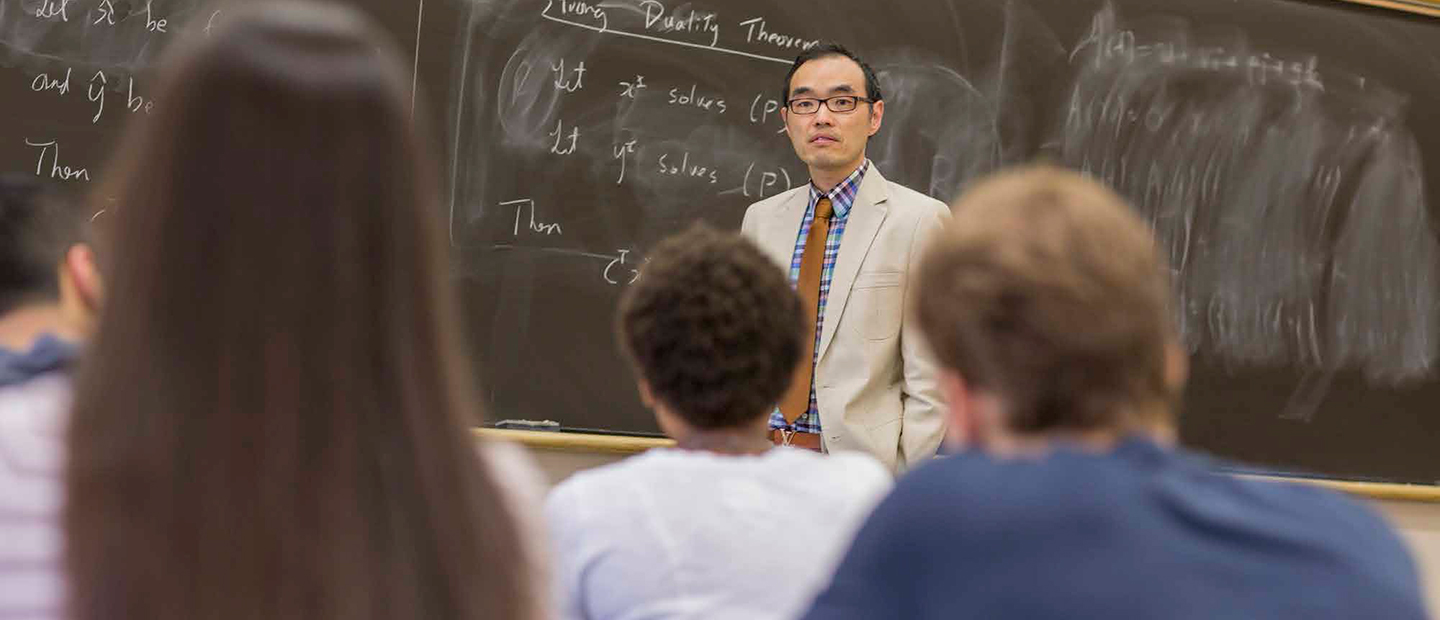
Undergraduate Programs
Skills in the mathematical sciences have become vitally important to our country and, as a result, have become valuable to the holder. Many years ago, mathematics training prepared one only for teaching or graduate school. That is no longer true. Many jobs, at attractive salaries, are now open to a person with training in the mathematics and statistics. Increasingly, industry prefers to hire people with the analytical and problem-solving skills that come from a sound training in the mathematical sciences.
See the Course Catalog for more information about the classes offered.
As of Fall 2017, all 3 digit course numbers have been renumbered to 4 digits. To find the current equivalent of a former 3 digit course, please consult your academic advisor.
Please do not hesitate to contact us if you need additional information or assistance. The departmental office is located on the third floor of the Mathematics and Science Center (the eight-story tower at the south end of campus), room 368. The phone number is (248) 370-3430.
For further information please contact the academic adviser, Professor Darrell Schmidt, at (248) 370-3433, or [email protected].
- Majors: B.S. in Actuarial Science, B.S. in Applied Data Science, B.S. in Applied Statistics, B.A. in Mathematics, B.S. in Mathematics, B.A. in Mathematics for Educators, B.S. in Mathematics for Educators (see Mathematics for Educators for more information)
- Minors: Applied Mathematics Minor, Applied Statistics Minor, Mathematics Minor
- Placement and prerequisites, includes information about advanced placement
- Transfer Guide: contains resources for students transferring from other Michigan schools to OU
- Transfer Equivalency Tool, contains course equivalencies for community colleges and four-year institutions (follow link, scroll down, click tab for Transfer Equivalency Tool)
- Policies of the Department: commitment to teaching, departmental final exams, incompletes, independent study, course competency, resolution of academic scheduling conflicts, calculator policy, end-of-term student evaluation questionnaires, awards and honors
- Math Help Center: a list of office hours by Faculty, Special Lecturers, Lecturers, TAs, and Tutors
- Academic Success Center: offers peer tutoring, study groups, and supplemental instruction programs
- Mathematics Student Society: a group of OU students who are interested in mathematics with a mission to bring students together to hear educational talks, form study groups, and learn about careers in math
- Mathematical Moments from the AMS: math posters from the American Mathematical Society, designed to promote appreciation and understanding of the role mathematics plays in science, nature, technology, and human culture
Department of Mathematics and Statistics
146 Library Drive
Rochester, MI 48309-4479
(location map)
phone: (248) 370-3430
fax: (248) 370-4184
Hours:
Monday–Friday: 8:00–11:59 a.m. and 1:00–5:00 p.m.







